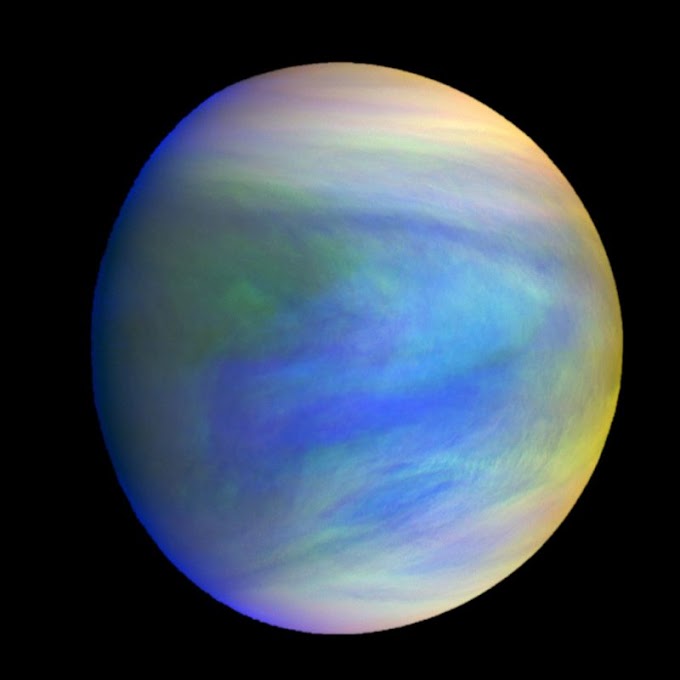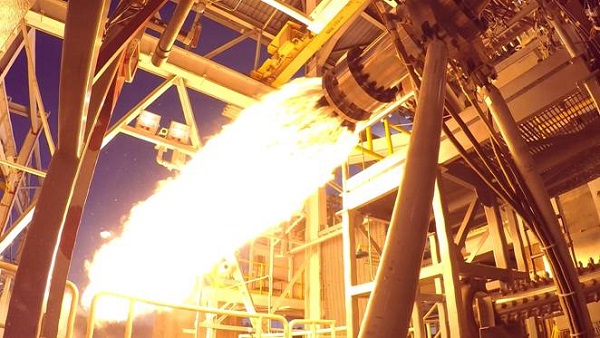We all are now present in a scenario of evolutionary stage and leading through the journey of cosmic development. We are already proven the existence of ourselves by the foot steps across the universe during different successful missions. This exciting journey influences mankind for further exploration of universe. The whole cosmic system of matter and energy constitutes universe which exact size is whether infinite or it has an exact value, still not confirmed and the prediction of it’s origin is still a mystery.
 |
| Credit-(NASA) |
The
Big Bang Theory of the Universe
The
Big Bang is the most interesting theory in the world of science which describes
the origin of Universe. About 13.7 billion years ago, the infinitely small
Universe suddenly exploded and gradually various particles like electrons,
protons, neutrons were formed. Within very less time (very very less than one
second), Universe constituting all particles expanded and every particle became
in it’s original shape and thus birth of Universe occurs which is called “The
Big Bang Theory". According to the Big Bang Theory, the whole universe emerged during a single moment which called singularity that is a point of infinit density. Before this there is no concept of space and time which also means that we can not predict the space and time of the occurrance of the Big Bang.
Modern theories of Elementary particle interactions, especially unification of forces, tell us that the history of the early universe has been full of exciting events. As the universe expanded and cooled, it went through series of phase transitions, like the steam to water transition, but with more exotic properties. Some of these transition changed the properties of the matter in the universe drastically
A
remarkable, but straightforward, prediction of The Big-Bang theory:
We
know that every hot thing emits light: When iron rod becomes hot it glows red,
when it is hotter, it becomes yellowish and then bluish. Similarly, Big-Bang
theory predicts the universe was extremely hot in early stages. It must have
been filled with bright light. As the universe cooled, light radiation would
have also changed accordingly. Thus light would have become redish with larger
wavelength Prediction. Today it appears as microwave which is same as what we
use for mobiles, TV etc. This is known as CMBR (Cosmic Microwave Background Radio Radiation).
 |
| Source-(Wikipedia) |
Let us understand the implication of the statement that the Universe was very small in the beginning. Long time ago Stars, planets etc. were formed from a large cloud of hot gas. Galaxies were huge lumps of hot gases, and gas clouds can always overlap. So, at very early times, the universe consisted of huge amount of hot gas everywhere and even earlier times, this gas was hotter, and denser.
 |
| Evolution of universe (Expanding Universe)Credit- NASA |
The Early Universe was very Hot
Age of the universe till present is about 13.7 billion years. It is very cold: temperature about 3 K (about - 270 oC ). As we look back when the Universe was much younger and much smaller there are highly compressed gas and the temperature of the gas was much higher. When the age of the universe was about 300,000 years (from the time of the Big-Bang), its temperature was about 10,000 K (~ few eV). (1eV = 1.16 x 104K). At such high temperatures, atoms become ionized losing electrons as the thermal kinetic energy becomes larger than the binding energy of the electrons in the atoms. When the age of the universe was few sec the temperature of the gas in the universe was about 1010 K(~ 1 MeV).
Gradually,
the temperature of Universe deccreased and particles became cool down to a
certain temperature. At that time a very important force came to picture that
is “Force of gravity”. Every atoms
and particles became closer and they attracted towards each other. In early
Universe, there exist many hydrogen atoms which was gradually compressed by the
gravity. Due to large compresseion, the temperature eventually increases and
when temperature increased beyond certain limit, a process occurred which is
called nuclear fusion. Through this process, very large number of radiation
emitted and thus birth of the first star of the Universe occurs and in this way
many stars gradually formed and they became in different shape and size. This
evolution of various stars eventually forms a big structure called galaxy and
many galaxies were formed. The left dust particles and different rocky objects
like asteroids and others come closer and produce some spatial objects which we
called planets. Also there are many pure hydrogen atoms left over which
combined and through nuclear fusion, they produce another stellar object named
Sun.
 |
| This graphic shows a timeline of the universe based on the Big Bang theory and inflation models. (Image credit: NASA/WMAP) |
Temperature
at the center of the Sun is about 106 K. Above this temperature, the thermal
kinetic energy becomes larger than the binding energies of protons and neutrons
in the nucleus. So, when the universe was younger than few sec., nuclei break
away into protons and neutrons. Further back in time: When the age of the
universe was sec, the temperature became higher than 1012 K (~ 100 MeV). At
that temperature protons and neutrons melt away in a plasma of their
constituents: A Plasma of Quark and Gluons. When the universe was younger
than a microsecond, it consisted of a hot plasma of elementary particles:
At present there are large experiments going on where heavy nuclei are collided with ultra-relativistic energies. It results in production of an extremely dense system of quarks and gluons.
The theory of Big Bang is very crucial for understanding the structure of the universe and it explains the timeline of gradual universal development. Theory includes the origin of stars, galaxies, birth of planets and thus related to the evolution of mankind and its journey starting from singularity and it's expansion to infinity that provides great evidence of begining of space journey.





0 Comments